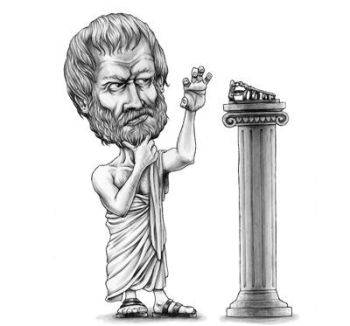I just wrote the following, off the top, as a long Tweet; take it for what it’s worth.
It’s ironic when you think about it: classical Calvinists claim to be strident proponents of a doctrine of total depravity. But when you actually look at the historical ideational development there, what you get from them is a Thomist intellectualist anthropology. This entails that the intellect is the defining component of what defines a human being as a  human being in a faculty psychology. The classical Calvinist (and Arminian), following Aquinas and Aristotle, requires that at the time of the fall the intellect and will remain intact, and only tarnished; and that the affections (or emotions) are what fell in the eating of the forbidden fruit. They need the intellect to remain intact, at some level, in order for the chain of being between themselves and the Big intellect or brain in the heavens (God) to have analogous connection, insofar that human beings are effects and images of their final cause in and from the pure being of God. It is upon this basis, i.e., the radical interconnectivity between God as the cause, and everything else, in a hierarchical chain of order, that is put into effect by the primary cause of God, wherein a knowledge of God, by way of natural and intellectual means (so, natural law/theology) can be appealed to by both the Catholic and Post Reformed orthodox theologians. And so, their actual doctrine of total depravity isn’t ultimately an accurate depiction of what someone might think. Humanity remains humanity after the fall insofar that they are connected to their primary cause by way of analogous intellects. As such, humanity, in this frame, maintains a point of contact with God through the intellectual prowess. After the fall what fallen humanity needs isn’t ultimately re-creation (from actual death to life), but a medicine of grace wherein nature is once again perfected to its original perfection in God. This is why it can be effectively argued that Post Reformed orthodoxy offers a semi-Pelagian soteriology, just as much as the Catholic system does (they are of apiece).
human being in a faculty psychology. The classical Calvinist (and Arminian), following Aquinas and Aristotle, requires that at the time of the fall the intellect and will remain intact, and only tarnished; and that the affections (or emotions) are what fell in the eating of the forbidden fruit. They need the intellect to remain intact, at some level, in order for the chain of being between themselves and the Big intellect or brain in the heavens (God) to have analogous connection, insofar that human beings are effects and images of their final cause in and from the pure being of God. It is upon this basis, i.e., the radical interconnectivity between God as the cause, and everything else, in a hierarchical chain of order, that is put into effect by the primary cause of God, wherein a knowledge of God, by way of natural and intellectual means (so, natural law/theology) can be appealed to by both the Catholic and Post Reformed orthodox theologians. And so, their actual doctrine of total depravity isn’t ultimately an accurate depiction of what someone might think. Humanity remains humanity after the fall insofar that they are connected to their primary cause by way of analogous intellects. As such, humanity, in this frame, maintains a point of contact with God through the intellectual prowess. After the fall what fallen humanity needs isn’t ultimately re-creation (from actual death to life), but a medicine of grace wherein nature is once again perfected to its original perfection in God. This is why it can be effectively argued that Post Reformed orthodoxy offers a semi-Pelagian soteriology, just as much as the Catholic system does (they are of apiece).
Barth, on the other hand, rejected this type of intellectualist anthropology, and maintained what you’d think a doctrine of total depravity would entail. Viz., that humanity, after the fall (and even before), has nothing inherent in itself to make connection with God; i.e., nothing natural, so to speak. As such, it requires an absolute re-creation of humanity, in the vicarious humanity of Christ, in order for there to be a correspondence, or analogy of relation, between God and humanity (contra the analogy of being and natural theology). Humanity comes to have a correspondence for knowledge of God, insofar that Christ re-creates that for us in His resurrected and ascended humanity; and in His humanity come and coming.
